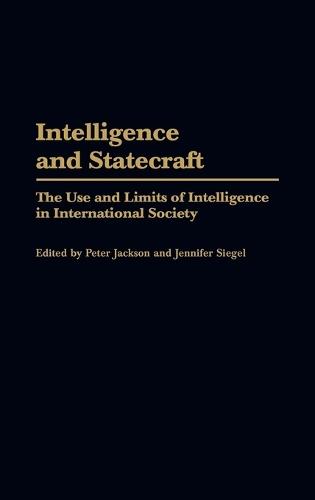Overview
Intelligence has never been a more important factor in international affairs than it is today. Since the end of the Second World War, vast intelligence bureaucracies have emerged to play an increasingly important role in the making of national policy within all major states. One of the biggest problems within the contemporary thinking about intelligence and international relations is a lack of historical context. Observers routinely comment on the challenges facing intelligence communities without reflecting on the historical forces that have shaped these communities over the past two centuries. As presented in this volume, new perspectives on the evolution of intelligence services and intelligence practice over the past 200 years can only enrich ongoing debates over how best to reform national intelligence structures. The practices of war and international politics were transformed by the conflicts of the French Revolution and the Napoleonic era. One of the most important outcomes of this transformation was the gradual emergence of permanent and increasingly professionalized intelligence services within the military and foreign policy establishments of the Great Powers. The contributions in this volume consider the causes and consequences of this trend as well as its impact on war, strategy, and statecraft. The rise of permanent intelligence bureaucracies has combined with technological progress to transform practices of intelligence collection and analysis that have remained essentially unchanged since the Roman era. Ultimately, however, the nature and limits of intelligence have remained constant, rendering intelligence little or no more effective in reducing uncertainty at the opening of the 21st century than in centuries past.
Full Product Details
Author: Peter Jackson ,
Jennifer Siegel (Ohio State University, USA)
Publisher: Bloomsbury Publishing Plc
Imprint: Praeger Publishers Inc
Dimensions:
Width: 15.60cm
, Height: 1.70cm
, Length: 23.50cm
Weight: 0.595kg
ISBN: 9780275972950
ISBN 10: 027597295
Pages: 302
Publication Date: 30 April 2005
Recommended Age: From 7 to 17 years
Audience:
Professional and scholarly
,
Professional & Vocational
Format: Hardback
Publisher's Status: Active
Availability: Manufactured on demand

We will order this item for you from a manufactured on demand supplier.
Reviews
?[T]races the rise and development of the military attache from the nineteenth century and links this to the increasing demand for intelligence generated by the requirements of modern war....[f]ascinating new tidbits of information. This remains a fertile field for cultivation.?-The Journal of Military History
[T]races the rise and development of the military attache from the nineteenth century and links this to the increasing demand for intelligence generated by the requirements of modern war….[f]ascinating new tidbits of information. This remains a fertile field for cultivation. * The Journal of Military History *
[T]races the rise and development of the military attache from the nineteenth century and links this to the increasing demand for intelligence generated by the requirements of modern war....[f]ascinating new tidbits of information. This remains a fertile field for cultivation. - The Journal of Military History
Author Information
Peter Jackson is Senior Lecturer in International Politics in the Department of International Politics at the University of Wales, Aberystwyth. He has published widely in the fields of intelligence and security studies, French strategy and diplomacy and the origins of the Second World War. His most recent publication is Understanding Intelligence in the Twenty-First Century. Jennifer Siegel is Assistant Professor of History at Ohio State University. She specializes in modern European diplomatic and military history, with a focus on the British and Russian Empires. She is author of Endgame: Britain, Russia and the Final Struggle for Central Asia, winner of the 2003 AAASS Barbara Jelavich Prize.



